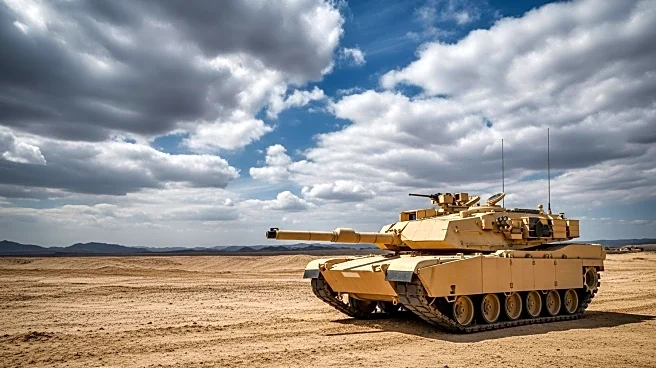What's Happening?
Israel has begun mobilizing tens of thousands of reservists as part of its plan to widen the offensive in Gaza City, despite domestic opposition and international condemnation. The call-up comes as ground and air forces target areas in northern and central Gaza, including Zeitoun and Shijaiyah. The offensive has transformed Gaza City, with streets emptied and buildings reduced to rubble. Criticism over the war is growing, with movements organizing to encourage reservists not to serve. The Gaza Health Ministry reports increasing malnutrition-related deaths, highlighting the humanitarian crisis.
Why It's Important?
The mobilization of reservists for the Gaza City offensive underscores the intensification of Israel's military strategy, with significant implications for regional stability and humanitarian conditions. The growing criticism reflects domestic and international concerns over the humanitarian impact and ethical dimensions of the conflict. The dissatisfaction among reservists may affect military readiness and public opinion, posing challenges to Israel's long-term strategic objectives. The humanitarian crisis in Gaza may lead to increased international pressure for intervention and ceasefire negotiations.
What's Next?
The ongoing conflict may lead to further internal disputes and calls for strategic reassessment. International stakeholders may increase pressure for humanitarian intervention and ceasefire negotiations. The dissatisfaction among reservists may lead to protests or refusals to serve, affecting military operations and public opinion. The government's handling of the situation may influence future political and military appointments, shaping Israel's approach to conflict resolution.
Beyond the Headlines
The ethical and humanitarian dimensions of the offensive raise questions about Israel's long-term strategy in Gaza and its impact on civilian populations. The potential for military rule over Gaza could alter the geopolitical dynamics in the region, affecting Israel's security and diplomatic relations. The internal rift may influence future military appointments and policy decisions, shaping Israel's approach to conflict resolution.










